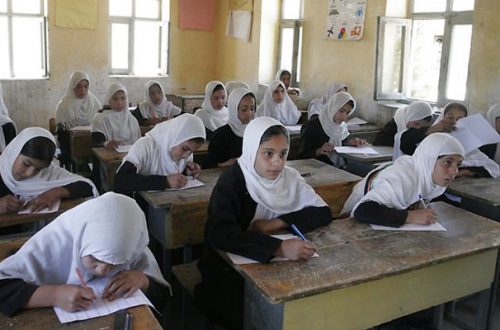Okay, so we all know the cliche: one man’s terrorist is another’s freedom fighter. While obviously containing a kernel of truth, we should not allow moral relativism to paralyse us. We are sentient beings and can make the call on whether a group’s cause and actions are legitimate and righteous or not.
It is this question that we inevitably come back to when considering what can be done with Jihadis.
The problem, of course, is that they are neither soldiers nor criminals (in the strictest sense).
They are not soldiers. Soldiers, generally speaking, are politically disinterested. They follow orders. When the war is over, soldiers return home and return to civilian life. This is why P.O.W. camps can be closed down and the prisoners freed at the cessation of hostilities.
They cannot be handled like criminals either. We don’t have a police force monitoring combat zones, ready to collect evidence and secure the crime scene. In short, a criminal investigation – with a view to having a trial in a civilian court – is simply not practical. What’s more, for those convicted of a crime, we hold on to the hope that the punishment will reform them and that their experience in prison might persuade them to take advantage of opportunities beyond a life of crime. It is rare that common-or-garden variety criminals are ideologically married to criminal behaviour. With the politically-motivated, the dynamic is completely different. They will regard themselves as “political prisoners” and will be symbols – martyrs – for their cause, helping to radicalise others.
Modern terrorist fall in the gap. They can’t be treated as soldiers because they’re self-motivating, and they can’t be treated as criminals because the normal parameters of a criminal investigation can’t be maintained.
According to a Reuters report, one in seven of those released from Guantanamo Bay has returned to terrorist activity. At the same time, the issue about the existence of the camp itself continues to fester after President Obama’s plans were blocked by the Senate. This serves to re-open the debate about what we’re supposed to do with them. Ironically, one former Guantanamo inmate (and now StWC activist and Guardian CiF columnist) the fomer roving self-described “charity worker” Moazzam Begg owes his life to having been held by the Americans – unlike his unfortunate acquaintance, Ali al-Fakhiri, found dead in the custody of his Libyan gaolers.
So what to do with these people? We can’t accede to unreasonable demands from the usual idiots that we try them in a criminal court with the usual rules of evidence, and we can’t treat them as P.O.W.s (for a start, they’re not uniformed combatants of a recognised state). So what’s left?
Well, one suggestion is that they’re treated like pirates. By ‘pirates’, I don’t mean the mamby-pamby indecision with which we greet modern Somali pirates, I mean by the ruthless means by which pirates were rooted out in previous centuries. With the difficulties of international jurisdiction that piracy illuminated came the precept of hostis humani generis– enemies of mankind. That’s exactly what Jihadi terrorists are.
The obvious problem is making a consistent international law around this. As I started out saying, a terrorist to some is a ‘freedom fighter’ to others. Some will say point to the ‘noble tradition’ of non-state, self-motivated combatants, fighting out of uniform: the valiant French Resistance fighter standing up to the fascist invaders, or an Umkonto We Sizwe cadre taking on racist oppression, or a Minute Man sending King George packing… Yes, indeed. These are all very good examples.
But a Jihadi fighting for the Taliban is none of these. He is the fascist, fighting to turn countries into hell-holes of oppression. He may think it is in the noble cause of Allah, but… well, this is a very important ‘but’… BUT… he’s wrong. Is that a value judgement? Damn sure, it is! Does anyone really think we can escape these moral questions without making value judgement?
There is no mechanical answer that will turn international law into a mere calculating machine with cogs, wheels and levers. To decide whether individuals or groups are legitimate resistance against tyranny or mere terrorists seeking to impose tyranny, we have to make a judgement. It’s inescapable. We have to believe that the enlightened, democratic liberalism that we stand for is something so valuable to Humanity that it is not only capable of guiding us in these judgements but that it is worth defending. It is worth fighting for.
It is very liberating to take this step beyond post-modern moral relativism: to be able to say “of course it’s right that girls get an education, can dress freely, see who they like freely, move around freely without being stoned or having acid thrown in their faces.” If we ever paused even for a second to wonder whether opposing this was just western imperialist chauvinism we should be fucking ashamed of ourselves!
If a repressive State then decided to call ‘hypocrisy’ when we criticised their imprisoning or execution of political prisoners, they would simply be wrong. It is wrong to repress those who seek freedom. It is right to stop those who, by force of arms, seek to terrorise and oppress.
Al Qaeda and the Taliban seek to terrorise and oppress.
So ‘pirates’ they are. What can we do with pirates? After a short but thorough military inquest to determine whether they are in fact pirates (or terrorists) we shoot them.
On the other hand – with a few reforms – we could just keep Guantanamo Bay.
